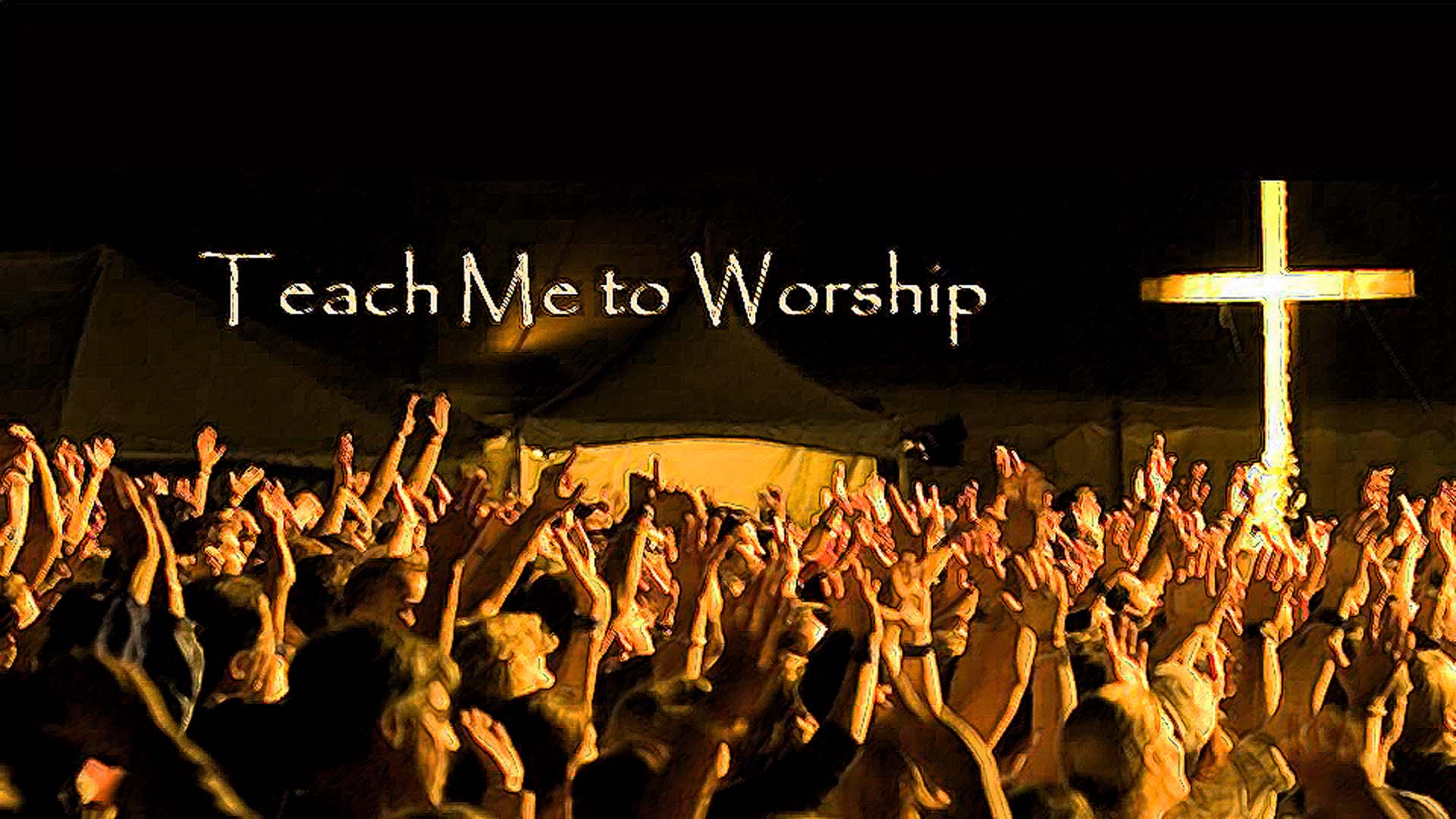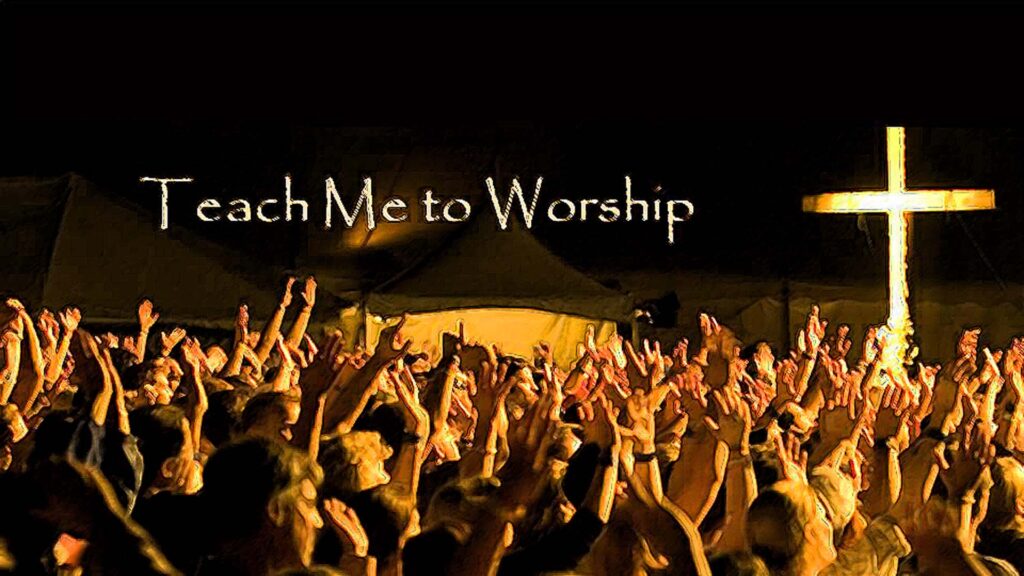Physical Address
304 North Cardinal St.
Dorchester Center, MA 02124
Physical Address
304 North Cardinal St.
Dorchester Center, MA 02124
With Michael Walker
With Michael Walker

A message to believers…..

I. Worship Is More Than Bowing — It’s Being
In many religious systems and pop culture portrayals, worship is imagined as kneeling before a powerful being in forced submission — a robotic ritual to appease a tyrant. But when Jesus enters the scene, He doesn’t point us to a throne to tremble before. He points us to a Father to walk with. Romans 8:15 tells us, “You have received the Spirit of adoption as sons, by whom we cry, ‘Abba! Father!'” This word Abba is deeply intimate. It isn’t just “Father” in a formal sense, but “Daddy,” whispered through tears, dependency, and love. When you ask, “Why should I worship You?” God doesn’t answer with power — He answers with presence. Not control, but connection. Not fear, but family.
In the Old Testament, physical bowing symbolized humility and submission — not because God needed it, but because man did. It trained the heart. It aligned the soul. It reminded us who we were in the face of the Holy. But now, in Christ, we approach God not merely as His creation but as His children. Our worship doesn’t begin on our knees — it begins in our identity.
II. Word Study: Worship in Hebrew and Greek
In Hebrew, the word for worship is “shachah” (שָׁחָה, Strong’s H7812). It means to bow down, to prostrate oneself, to lie face down in homage or surrender. We see this in Genesis 22:5 when Abraham tells his servants he and Isaac are going to “worship” before returning. It wasn’t a concert or a sacrifice yet. It was an act of obedient surrender rooted in trust. In Exodus 34:8, Moses bows low and worships after seeing the glory of the Lord pass by. Not because he was forced, but because he had witnessed a grace-soaked glimpse of divine glory.
In Greek, the New Testament word is “proskuneo” (προσκυνέω, Strong’s G4352). It means to fall down in reverence, to kiss toward in homage, like a servant or even a dog before its master. In John 4:24, Jesus says, “God is spirit, and those who worship Him must worship in spirit and truth.” The emphasis here is not on external ritual but internal authenticity. Not form, but essence. Worship was never meant to be empty obedience — it was always meant to be a truthful exchange of presence, spirit to Spirit.
III. Worship Is Not Forced Obedience — It’s Freely Given Reverence
The world associates worship with dictatorship — loveless, powerful beings demanding loyalty through fear. But Scripture paints a radically different image. Psalm 50:12-14 says, “If I were hungry, I would not tell you… Offer to God a sacrifice of thanksgiving.” God doesn’t need worship — we do. Worship aligns us with what’s true: that He is the source of all good, the center of all meaning, and the anchor of all being. We don’t worship because He’s insecure. We worship because we were made to reflect Him, and we malfunction when we don’t.
When we see worship as performance, we strive to impress. But when we see it as relationship, we surrender to express.
IV. Why Worship? Because of Who the Trinity Is
There are so many reasons to worship, and it has nothing to do with what God has done, but with the character of the Trinity altogether. That’s the truth, and that’s where real worship starts — not with what we get, but with who He is.
The Father is holy, just, and merciful. He doesn’t just give commands — He gives covenant. He’s not just holy — He’s near. His love isn’t abstract — it’s the very DNA of your being. Psalm 103:13 says, “Just as a father has compassion on his children, so the Lord has compassion on those who fear Him.”
The Son is obedient, humble, and selfless. Jesus didn’t die to prove something about God’s ego — He died to prove something about His heart. Philippians 2:6-8 reminds us that though He was in the form of God, He did not consider equality with God something to be grasped, but humbled Himself to death on a cross. He didn’t flinch in the garden. He bled. And He still called God “Father” — not because He felt Him, but because He knew Him.
The Spirit is gentle, indwelling, and transformative. He doesn’t shout. He whispers. He doesn’t dominate — He indwells. Romans 8:16 says, “The Spirit Himself testifies with our spirit that we are children of God.” This indwelling isn’t forced. It’s invited. Worship becomes ongoing dialogue with the Spirit, not a scripted monologue to the sky.
V. Worship Is Reflection, Not Just Recognition
How do you worship your Father? By mirroring Him. Ephesians 5:1 says, “Be imitators of God, as beloved children.” Worship isn’t just about recognizing God’s greatness — it’s about reflecting it.
When we forgive someone undeserving, sit with someone who’s hurting, speak life when we want to curse, or choose patience when we want control, we are worshiping. We are mirroring our Abba.
VI. Worship Is Giving Him Access, Not Just Attention
Worship isn’t just about bowing and surrendering daily — can it be lived? Yes. In fact, worship is best expressed when it’s not confined to an event. Colossians 3:17 tells us, “Whatever you do, in word or deed, do all in the name of the Lord Jesus.” When you’re at work, in traffic, creating art, raising children, healing from pain — all of it becomes worship when it flows from a place of relationship, not ritual.
VII. How Would a Son Worship His Father?
You call Him Abba. That one line says more than volumes. Sons don’t try to prove. They just belong. The son doesn’t serve his father because he’s afraid — he does it because he’s loved. He reflects him. He carries his name. He trusts his character. John 14:9 says, “If you’ve seen Me, you’ve seen the Father.”
Jesus modeled what it looked like to live as a Son: not in constant performance, but in constant proximity. He didn’t go to worship — He was worship.
Conclusion: Worship Is the Life of a Loved Son
Worship is not an obligation. It’s not for God’s benefit. It’s the natural response of a son who knows who his Father is. John 4:23 says, “The Father seeks true worshipers — those who worship in spirit and in truth.”
He’s not looking for perfection. He’s not looking for performance. He’s looking for sons and daughters who wake up each day and say: “Abba, here I am. Let my life reflect You.”
That’s worship. That’s sonship. That’s freedom.